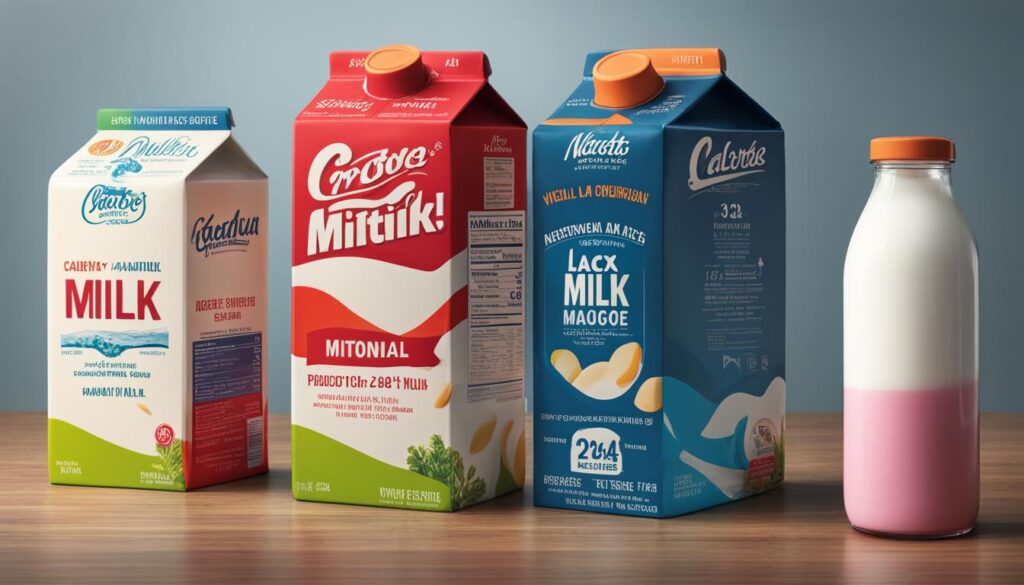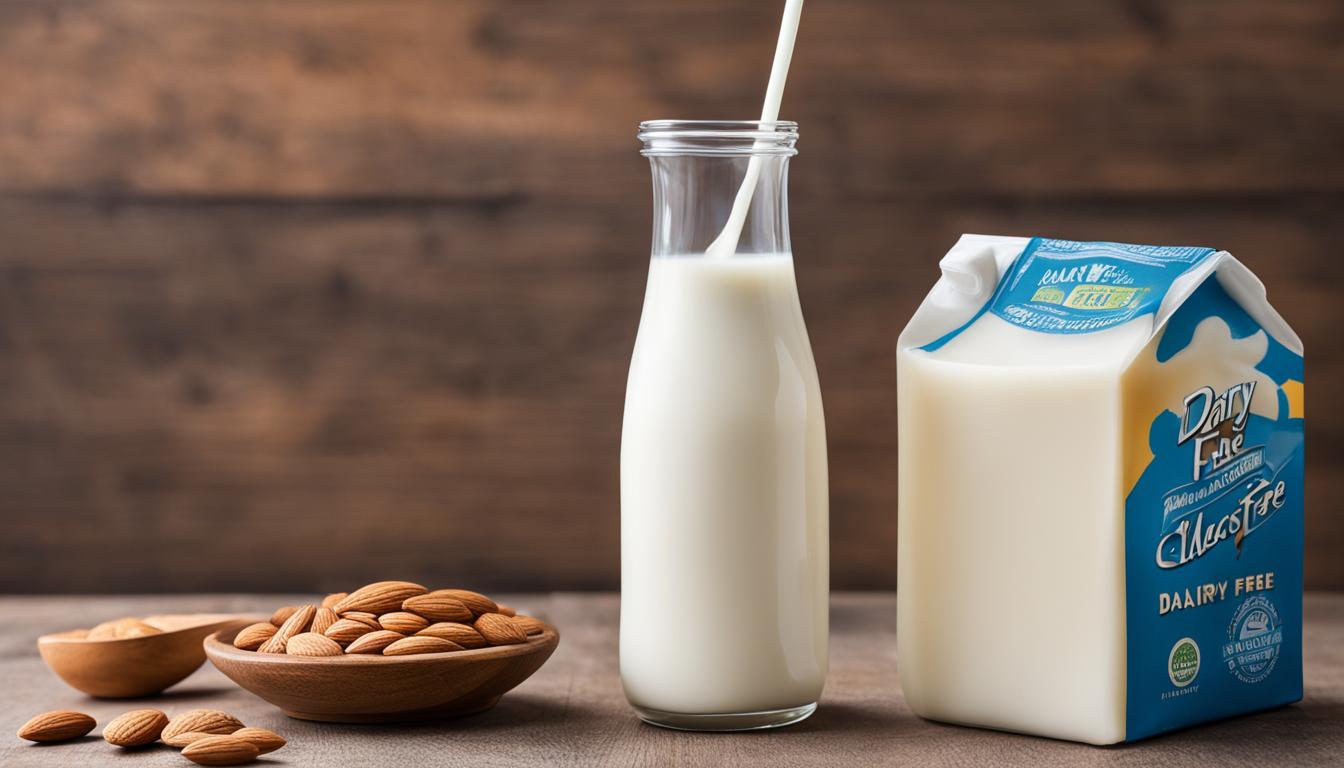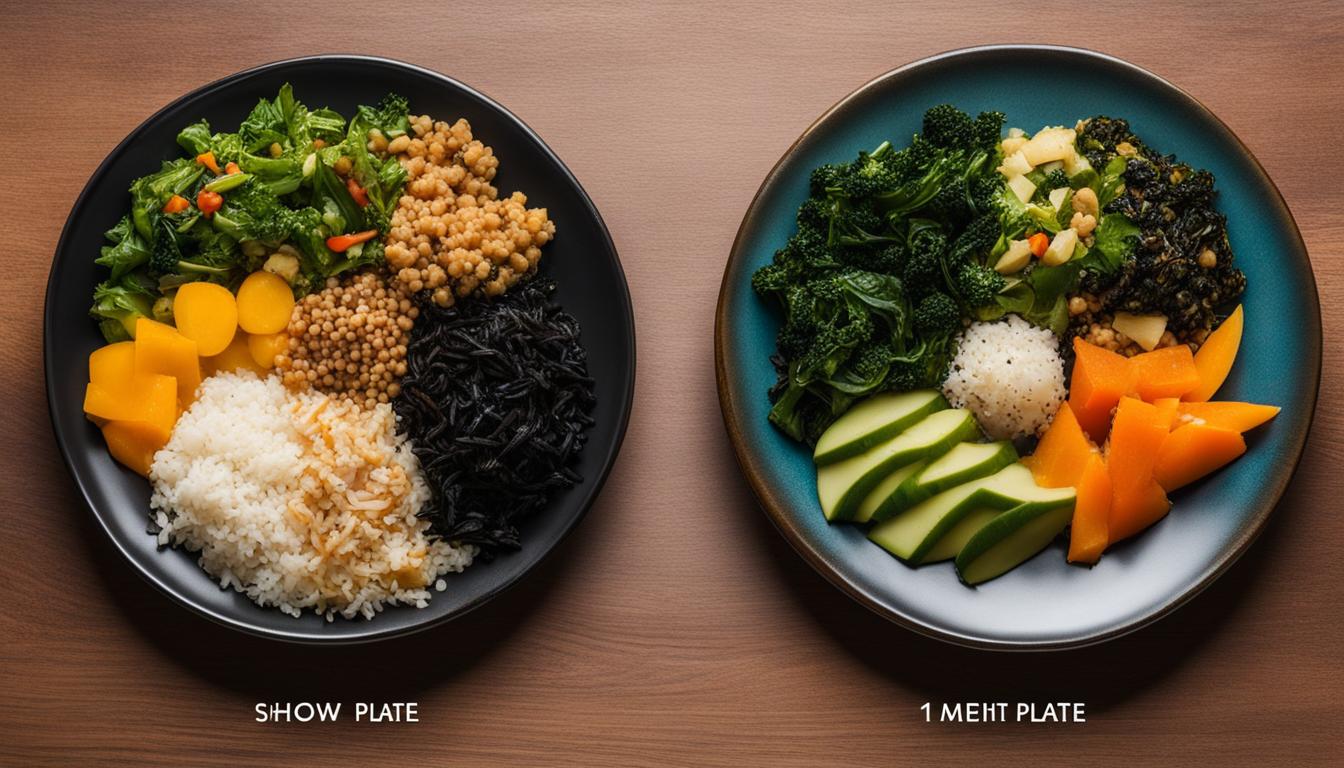In today’s health-conscious world, many individuals are exploring alternative dietary options to suit their specific needs and preferences. Two such options that often come up in conversations are dairy-free and lactose-free. While they may sound similar, they actually have distinct differences that are important to understand. Let’s take a closer look at what sets dairy-free and lactose-free apart.
Key Takeaways:
- Dairy-free products are completely free from any milk or milk products and are typically made from plant-based alternatives.
- Lactose-free products have the lactase enzyme added to regular dairy products, making them easily digestible for individuals with lactose intolerance.
- Understanding the difference between dairy-free and lactose-free is crucial for individuals with dietary restrictions or concerns.
- Dairy-free and lactose-free products both have their pros and cons, and the choice depends on individual dietary needs, preferences, and medical conditions.
- By making informed choices about dairy-free and lactose-free options, individuals can maintain a balanced and healthy diet.
Nutritional Comparison: Lactose-Free vs Dairy-Free Products
When it comes to choosing between lactose-free and dairy-free products, understanding the nutritional differences is essential. Let’s take a closer look at how these two options compare in terms of their nutritional value.
Nutritional Value of Lactose-Free Products
Lactose-free milk, such as lactose-free cow’s milk, offers the same nutritional value as regular milk but with the addition of the lactase enzyme. It is rich in protein, calcium, phosphorus, and B vitamins. Lactose-free products also provide a convenient option for individuals with lactose intolerance, allowing them to enjoy dairy products without experiencing digestive discomfort.
Nutritional Value of Dairy-Free Products
Dairy-free alternatives, like almond milk or soy milk, are typically made from plant-based sources. While these products may be lower in calories and fat compared to dairy products, they may also be lower in protein and not as nutritionally balanced. It’s important to note that dairy-free products often undergo fortification to compensate for the lack of naturally occurring nutrients found in dairy products.
To summarize, lactose-free products retain the nutritional value of dairy products while being easier to digest for individuals with lactose intolerance. On the other hand, dairy-free alternatives offer plant-based options but may require additional fortification to achieve nutritional balance. The choice between lactose-free and dairy-free products ultimately depends on individual dietary needs, preferences, and any underlying medical conditions.

| Lactose-Free Products | Dairy-Free Products | |
|---|---|---|
| Source | Cow’s milk with added lactase enzyme | Plant-based alternatives (e.g., almond milk, soy milk) |
| Protein Content | Similar to regular dairy products | Lower compared to dairy products |
| Calcium Content | Similar to regular dairy products | May require fortification |
| Other Nutrients | Rich in phosphorus and B vitamins | Varies depending on fortification |
Diets and Medical Conditions Requiring Lactose-Free or Dairy-Free
Various diets and medical conditions may necessitate the adoption of a lactose-free or dairy-free approach. Understanding these dietary restrictions and their associated benefits is essential for individuals seeking to make informed choices about their eating habits.
Lactose Intolerance
Lactose intolerance affects approximately 65% of the global population and occurs when the body lacks the enzyme lactase necessary to digest lactose, a sugar found in milk. As a result, individuals with lactose intolerance often experience digestive discomfort such as bloating and gas. For these individuals, following a lactose-free diet is recommended. Lactose-free products, which have the lactase enzyme added, allow individuals to enjoy milk-based products without experiencing the associated digestive symptoms.
Low FODMAP Diet and Digestive Disorders
Individuals with digestive disorders such as Crohn’s disease or Celiac disease may also benefit from following a lactose-free diet. Additionally, those following a low FODMAP diet, which aims to reduce the intake of fermentable carbohydrates, often include lactose-free dairy products to minimize digestive discomfort.
Post Intestinal Surgery, Chemotherapy, and Radiation Therapy
Individuals who have undergone intestinal surgery or are undergoing chemotherapy and radiation therapy may temporarily require a lactose-free diet. These medical treatments can cause temporary lactose intolerance or gastrointestinal complications that necessitate the avoidance of lactose-containing products.
Vegan, Ovo-Vegetarian, and Paleo Diets
Dairy-free diets, which exclude all milk and milk products, are suitable for individuals following vegan, ovo-vegetarian, or paleo diets. Vegan diets eliminate all animal-based products, including dairy, while ovo-vegetarian diets allow for the consumption of eggs alongside a plant-based diet. Paleo diets focus on consuming foods that were available to our ancestors, excluding dairy products.
Milk Protein Allergy and Cultural/Religious Preferences
Dairy-free diets are also necessary for individuals with milk protein allergies, as these individuals must avoid all milk and milk derivatives. Additionally, individuals with cultural or religious preferences that abstain from dairy products, such as those following kosher or halal dietary restrictions, also adopt dairy-free diets.
By understanding the dietary requirements associated with lactose-free and dairy-free diets, individuals can make informed choices that align with their specific needs and concerns.
Pros and Cons: Lactose-Free vs Dairy-Free
A lactose-free diet and a dairy-free diet both have their own set of advantages and disadvantages. Understanding the pros and cons of each can help individuals make informed dietary choices based on their specific needs and preferences.
Benefits of a Lactose-Free Diet:
- Easier digestion for individuals with lactose intolerance
- Allows for less restriction in overall diet
- Provides a good source of protein and calcium
Disadvantages of a Lactose-Free Diet:
- Not suitable for individuals with milk protein allergies
- May not meet the nutritional needs of individuals with other dietary restrictions
Benefits of a Dairy-Free Diet:
- Offers a wider variety of plant-based alternatives
- Suitable for vegans and individuals with cultural or religious dietary preferences
Disadvantages of a Dairy-Free Diet:
- May be more challenging to meet nutritional needs
- May contain less protein, calories, and calcium compared to lactose-free alternatives
- Potential risks for individuals with other allergies or gluten sensitivity
Both lactose-free and dairy-free diets have their own unique benefits and considerations. It is important to choose the option that aligns with individual dietary needs, preferences, and medical conditions to maintain a balanced and healthy diet.
| Lactose-Free Diet | Dairy-Free Diet | |
|---|---|---|
| Advantages | Easier digestion for lactose intolerant individuals | Wider variety of plant-based alternatives |
| Less restriction in overall diet | Suitable for vegans and cultural/religious preferences | |
| Good source of protein and calcium | ||
| Disadvantages | Not suitable for individuals with milk protein allergies | May be more challenging to meet nutritional needs |
| May not meet the nutritional needs of individuals with other dietary restrictions | May contain less protein, calories, and calcium compared to lactose-free alternatives | |
| Potential risks for individuals with other allergies or gluten sensitivity |
Conclusion
In conclusion, understanding the difference between lactose-free and dairy-free is essential for individuals with dietary restrictions or concerns. Lactose-free products are designed for individuals with lactose intolerance, as they contain the lactase enzyme that aids digestion. On the other hand, dairy-free products are completely free from any milk or milk derivatives, making them suitable for vegans and those with milk protein allergies.
Both lactose-free and dairy-free options have their pros and cons. Lactose-free products offer more protein and calcium, making them beneficial for individuals with lactose intolerance or digestive issues. They also allow for less dietary restrictions. However, they may not be suitable for those with milk protein allergies or cultural/religious dietary preferences.
Dairy-free products, made from plant-based alternatives, provide more plant diversity and are suitable for vegans. However, they may be more challenging to meet nutritional needs and may contain less protein, calories, and calcium compared to lactose-free alternatives. They may also pose risks for individuals with other allergies or gluten sensitivity.
When making dietary choices, it is important to consider individual needs, preferences, and medical conditions. Being informed about lactose-free and dairy-free options enables individuals to make balanced and healthy choices that align with their specific requirements.
FAQ
What is the difference between lactose-free and dairy-free?
Lactose-free refers to products that have the lactase enzyme added to regular dairy products, making them easily digestible for individuals with lactose intolerance. Dairy-free products, on the other hand, are completely free from any milk or milk products and are typically made from plant-based alternatives.
Are lactose-free products more nutritious than dairy-free alternatives?
Lactose-free milk has the same nutritional value as regular cow’s milk, while dairy-free alternatives like almond milk may be lower in calories and fat but also lower in protein and not as nutritionally balanced. Lactose-free and dairy-free cream cheese have similar nutritional breakdowns, but lactose-free cream cheese has a better taste and texture. Lactose-free yogurt contains more calcium and protein compared to its dairy-free alternative.
Who should be on a lactose-free diet?
A lactose-free diet is recommended for individuals with lactose intolerance, digestive disorders like Crohn’s or Celiac’s disease, individuals who have undergone intestinal surgery, or individuals undergoing chemotherapy/radiation therapy.
Who should follow a dairy-free diet?
A dairy-free diet is suitable for vegans, ovo-vegetarians, and individuals following paleo or Whole30 diets. It is also necessary for those with milk protein allergies or cultural/religious preferences that abstain from dairy products.
What are the benefits of a lactose-free diet?
A lactose-free diet allows for less restriction in overall diet and may provide more protein and calcium compared to a dairy-free diet. It is easier to digest and suitable for individuals with lactose intolerance or other digestive issues.
What are the benefits of a dairy-free diet?
A dairy-free diet offers more plant diversity and is suitable for vegans, but it may be more challenging to meet nutritional needs and may contain less protein, calories, and calcium compared to lactose-free alternatives. It may also pose risks for individuals with other allergies or gluten sensitivity.
What should I consider when choosing between lactose-free and dairy-free options?
The choice depends on individual dietary needs, preferences, and medical conditions. Individuals should consider if they have lactose intolerance, milk protein allergies, cultural/religious dietary restrictions, or other specific dietary preferences.
Is it necessary to choose between lactose-free and dairy-free?
Not everyone needs to choose between lactose-free and dairy-free options. It depends on individual dietary needs and preferences. Some may opt for lactose-free products while others may prefer dairy-free alternatives. Making informed choices about lactose-free and dairy-free options allows individuals to maintain a balanced and healthy diet.
Source Links
- https://www.lactaid.com/dairy-sensitivity/difference-between-lactose-free-dairy-free
- https://greenvalleylactosefree.com/lactose-intolerance/resources/lactose-free-vs-dairy-free-the-differences-explained
- https://www.massgeneral.org/children/nutrition/lactose-free-v-dairy-free-how-to-tell-the-difference
 Skip to main content
Skip to main content


